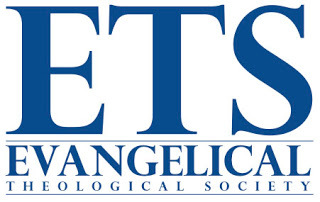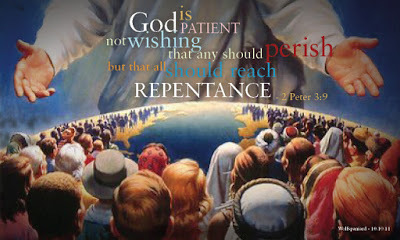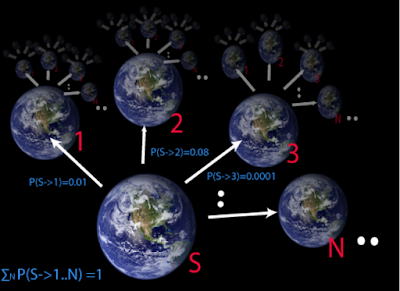Evan Minton's Blog, page 30
November 18, 2018
Reading The Bible Among Other Things

So you’ve just gone to the bookstore and got a stack of books you really want to dive into. However, you are also a dedicated Christian who wants to nourish yourself on God’s holy, inspired, inerrant word. But, there are only so many hours in the day and the free time you do have is, for the most part, spent reading. When you want to study The Bible but you also have other books you want to read, it can be difficult to manage your reading time. You don’t want to neglect the word of God but yo...
Published on November 18, 2018 08:26
November 17, 2018
My 2018 ETS Conference Experience

So, in Denver, Colorado, there was held the 70th Annual Evangelical Theological Society Conference (or ETS Conference for short). This is the first ETS conference I have ever attended. I was able to attend this conference thanks to the unbelievable generosity of my friend David Parrish who paid for all of my expenses except for several books I bought at the conference, and a couple of Soveneirs I got at the Denver airport on our way back. In this article, I would like to tell you about m...
Published on November 17, 2018 12:31
Addressing Calvinist Responses To 2 Peter 3:9

One of the most popular passages stating God's universal salvific will (i.e that God desires every human individual to be saved) is 2 Peter 3:9. 2 Peter 3:9 states that God "is not willing that any should perish, but that all should come to repentance". Indeed, The Society Of Evangelical Arminians even has "Not willing that any should perish" on their logo. A plain reading of this verse would suggest that God doesn't desire for Hell to contain a single human being, but for every human being t...
Published on November 17, 2018 05:00
November 7, 2018
The Case For Mere Molinism
Note: This paper is available to be downloaded in PDF Format. Click Here.

Abstract: In this article, I will make a case for the theological system called Molinism, named after the sixteenth century Jesuit Priest Luis De Molina. I will attempt to prove that it's true by abductive reasoning. I will demonstrate that The Bible teaches three theological truths; (1) that God is sovereign and meticulously controls everything that occurs in the world, (2) that human beings possess libertarian fr...

Abstract: In this article, I will make a case for the theological system called Molinism, named after the sixteenth century Jesuit Priest Luis De Molina. I will attempt to prove that it's true by abductive reasoning. I will demonstrate that The Bible teaches three theological truths; (1) that God is sovereign and meticulously controls everything that occurs in the world, (2) that human beings possess libertarian fr...
Published on November 07, 2018 05:10
November 6, 2018
Miraculous Intervention and Scientific Reliability

A while back, I saw a screenshot of a conversation between Luke Barnes and an atheist who question Barnes' scientific credentials, with Barnes mentioning that PhD. in Astronomy from Cambridge, has as post-doctoral researcher at the Swiss Federal Institute of Astronomy (ETH) and the University Of Sydney. Luke Barnes also co-authored a book with Geraint F. Lewis titled A Fortunate Universe: Life In A Finely Tuned Cosmos, which I highly recommend. I posted the comment to the Cerebral Faith Twitt...
Published on November 06, 2018 05:33
November 2, 2018
Q&A: On Being Able To Justify The Ontological Argument's First Premise Once More

 Evan,
Evan,You're probably tired of hearing from me about the Ontological Argument by now. I hope the fact that we hold different worldviews isn't getting in the way of our examining this argument on its own merits. Even if this one argument doesn't withstand scrutiny (and after scrutinizing it, I don't think it does), there are several other arguments for God's existence. Perhaps you and I are both interested in the Ontological Argument in particular because we both enjoy formal logic.
Now, I wrote...
Published on November 02, 2018 10:30
November 1, 2018
Q&A: The Ontological Argument And Possible Worlds That Don't Have Any Beings

 Evan,
Evan,Thank you for responding to my questions about the Ontological Argument. I've been trying to prove that the properties of existing in a world and being omniscient and omnipotent in that world are all together logically consistent. Intuitively, I think they might be consistent, but I haven't been able to prove it yet.
In logic and mathematics, consistency of a theory can be proven only so far as relative to another theory that is already assumed to be consistent. As an example, Lobachevski...
Published on November 01, 2018 08:26
October 30, 2018
Q&A: Questions About Faith's Relation To Reason

 Greetings Evan,
Greetings Evan,I have two questions for you: Is faith in God ultimately grounded in reason, and if so, is that a problem (theological speaking, that is)? For the sake of my question, I'll use the following definition of faith from the Oxford English Living Dictionary: Complete trust or confidence in someone or something. And I'll define God in the classic Judeo-Christian sense.
From the research I've done, it seems there are several epistemological frameworks for how faith should be grounded....
Published on October 30, 2018 05:28
October 29, 2018
Q&A: The Ontological Argument, God, and The Riemann Hypothesis

 Evan, thank you for correcting my mistake when I claimed the Ontological Argument is begging the question. I think we're in agreement now that the argument works both forward and in reverse; that is, you could reason from the premise to the conclusion or from the conclusion to the premise. So, the premise and conclusion are logically equivalent statements. But since they are not syntactically identical statements, nor obviously logically equivalent, the argument isn't begging the question, as...
Evan, thank you for correcting my mistake when I claimed the Ontological Argument is begging the question. I think we're in agreement now that the argument works both forward and in reverse; that is, you could reason from the premise to the conclusion or from the conclusion to the premise. So, the premise and conclusion are logically equivalent statements. But since they are not syntactically identical statements, nor obviously logically equivalent, the argument isn't begging the question, as...
Published on October 29, 2018 13:14
October 28, 2018
Q&A: Is The Ontological Argument Question Begging?

 Evan,
Evan,As you have again mentioned The Ontological Argument, I've been examining it in detail, and I think I have pinpointed its fatal flaw.
You wrote in your first premise, "It's possible that a Maximally Great Being (MGB) exists." And you explained in your third premise that if an MGB exists, it must exist necessarily; otherwise, it wouldn't be maximally great. We can't avoid the property of necessary existence without describing a lesser, contingent being instead of an MGB. The word "necessar...
Published on October 28, 2018 05:53



